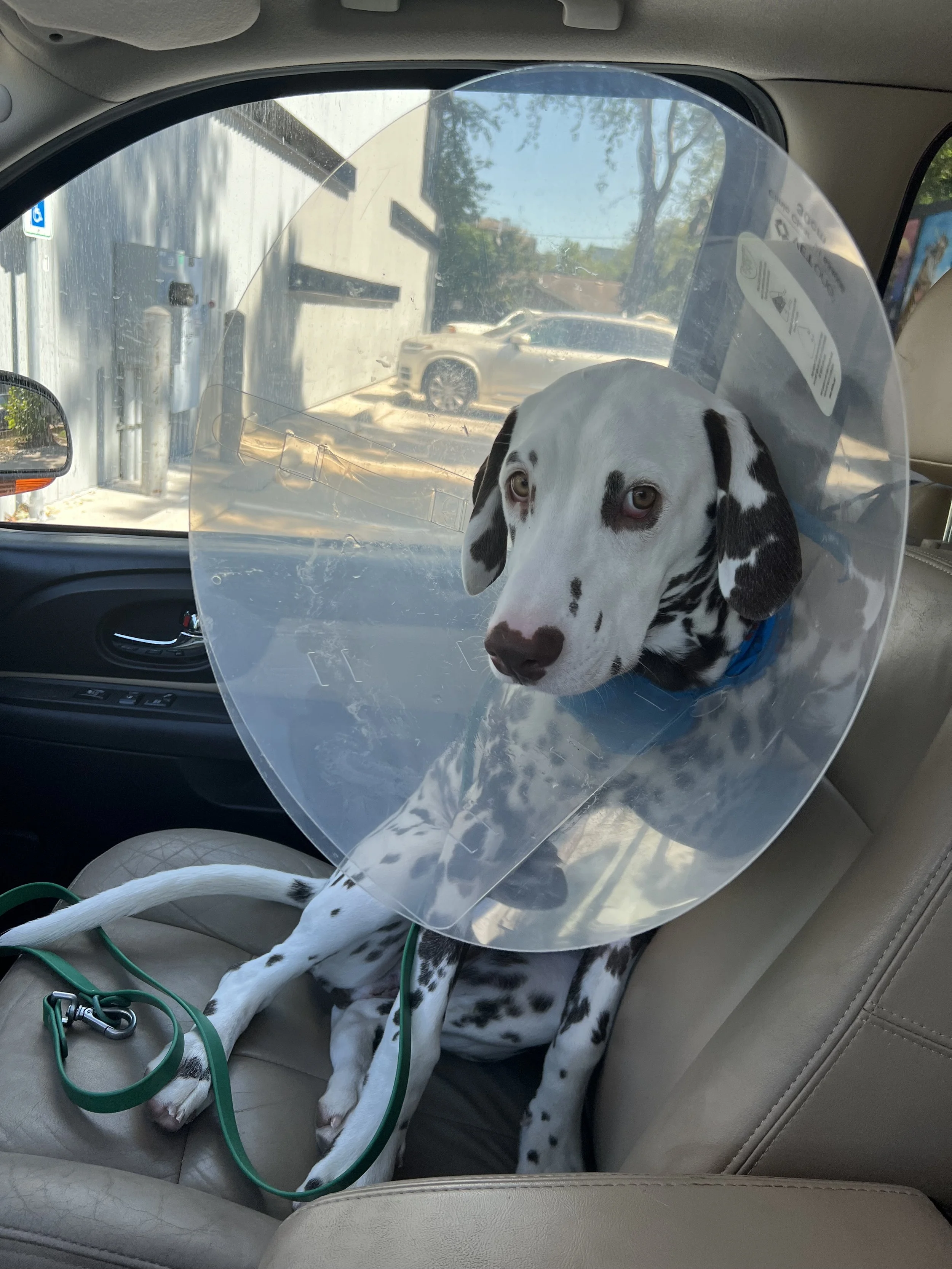Toxic Foods to Avoid Feeding Your Puppy
Pete after his trip to the emergency vet
Unsurprisingly, dogs' primary love language seems to be food. As most dog parents learn, treats are a great motivator when training a puppy, and food positively reinforces behaviors or tasks we’d like our dogs to complete, daily. With this inherent canine food obsession, however, comes the possibility that your dog might sink their teeth into something on the dreaded “never-feed list.”
True Story: Recently, one of Maev’s own team members became a new dog parent. While her back was turned, her 5-month-old pup, Pete, hoisted himself up to counter height and ate an entire package of gum. Unfortunately, gum is included on the list of foods to never feed your dog. Why? It often contains xylitol — a toxin commonly found in other consumer goods like toothpaste, mouthwash, candy, chewable vitamins, and even some peanut spreads — not to be confused with peanut butter. (If you tend toward organic peanut or nut butters with three to five recognizable ingredients, you’re likely in the clear. Note: All peanut butter used to supplement our Maev Raw Food Formulas and Vitamin Bars are 100% xylitol free.)
Needless to say, Pete was rushed to the emergency vet and is doing better than ever. In response to this incident, we decided to create a short, easy-to-use list of toxic dog foods for new pup parents and seasoned dog moms and dads alike.
According to a recent journal by the American Veterinary Medical Association, a healthy diet for your dog will consist of a high content of lean meats as well as fresh fruits and vegetables. Do what you can to keep your dog away from starchy foods as they may detract from a dog’s digestive and systemic health. (Note: Starches are often used as a binder in highly-processed kibble. Over time, a high-starch diet may negatively affect dogs just as it does humans — causing overweight, sluggishness, and beyond.)


